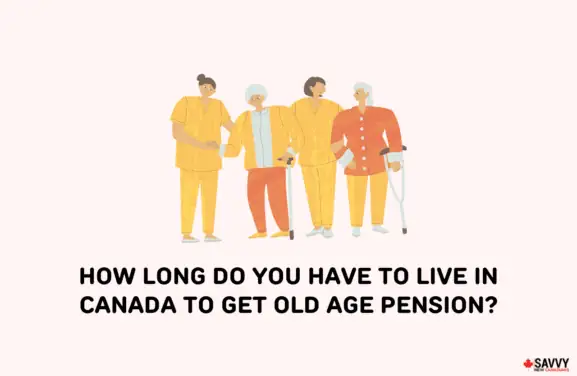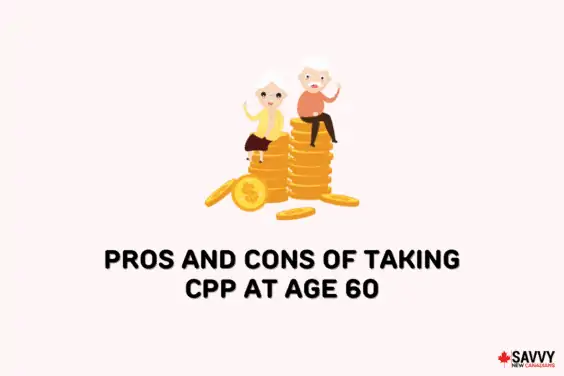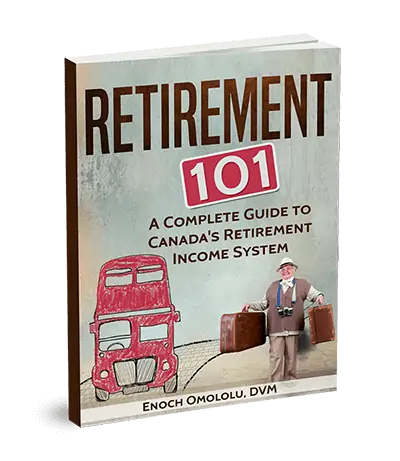The Canada Pension Plan (CPP) is one of the three main sources of retirement income for seniors in Canada.
CPP payments are made monthly and paid out through direct deposit to your bank or sent as a cheque. The payment schedule varies monthly but is generally on the third to last business day of each month.
CPP payment dates also coincide with when Old Age Security (OAS) pension benefits are paid out. You can read more about OAS vs CPP.
In Quebec, the CPP-style program is known as the Quebec Pension Plan.
CPP Payment Dates for 2024
The Canada pension payment dates in 2024 (CPP payment dates) are:
- January 29, 2024
- February 27, 2024
- March 26, 2024
- April 26, 2024
- May 29, 2024
- June 26, 2024
- July 29, 2024
- August 28, 2024
- September 25, 2024
- October 29, 2024
- November 27, 2024
- December 20, 2024
CPP payments include the CPP retirement pension, CPP disability, children’s benefits, and survivor’s benefits.
OAS benefits are made out on the same dates and include the OAS pension, Guaranteed Income Supplement (GIS), Allowance, and Allowance for the Survivor.
December payments are generally scheduled before December 25.
How Much CPP You May Qualify For
You may wonder how much CPP to expect and why your payments are what they are.
The amount of CPP you get is based on your contributions to the plan. The more you contribute (and the longer you contribute), the more CPP you will qualify for in retirement.
Generally, to receive CPP, you must be at least 60 years old and have made at least one contribution to the plan. Most people will not qualify for the maximum CPP because they did not make the maximum contributions to the plan… i.e. for at least 39 years.
Here’s a snapshot of the average and maximum CPP payments for 2024:
| Type of pension or benefit | Average amount for new beneficiaries | Maximum monthly payment amount (2024) |
| Retirement pension (at age 65) | $758.32 | $1,364.60 |
| Post-retirement benefit(at age 65) | $11.41 | $44.46 |
| Disability benefit | $1,127.30 | $1,606.78 |
| Post-retirement disability benefit | $558.74 | $583.32 |
| Survivor’s pension – younger than 65 | $498.66 | $739.31 |
| Survivor’s pension – 65 and older | $315.77 | $818.76 |
| Children of disabled CPP contributors | $281.72 | $294.12 |
| Children of deceased CPP contributors | $281.72 | $294.12 |
| Death benefit (one-time payment) | $2,499.73 | $2,500.00 |
| Combined benefits | ||
| Combined survivor’s and retirement pension (at age 65) | $944.53 | $1,375.41 |
| Combined survivor’s pension and disability benefit | $1,230.33 | $1,613.54 |
As you can see, the average CPP retirement pension benefit is $758.32, which is just over 55% of the maximum CPP amount of $1,364.60.
Who Gets the Maximum CPP Benefit?
The maximum monthly CPP benefit in 2024 is $1,364.60 per month or $16,375.20 per year. To receive the maximum CPP, you must have:
- Contributed to the CPP for at least 39 years of the 47 years from age 18 to 65.
- Contributed the maximum amount to the CPP for at least 39 years based on the Yearly Maximum Pensionable Earnings (YMPE).
The YMPE is the amount used to calculate the maximum contribution to the CPP/QPP each year.
For example, for 2024, the YMPE is $68,500, up from $66,600 in 2023.
Maximum CPP Contribution for 2024
- YMPE = $68,500
- Basic exemption: $3,500
- CPP contribution rate (employee): 5.95%
- maximum contributory earnings: $65,000 (i.e. $68,500 minus $3,500)
- Maximum annual employee base CPP contributions in 2024: $3,867.50
A second income threshold applies in 2024 for employees earning over $68,500. They pay an additional CPP contribution rate of 4% on income between $68,500 and $73,200.
The YMPE over the years are:
- 2024: $68,500
- 2023: $66,600
- 2022: $64,900
- 2021: $61,600
- 2020: $58,700
- 2019: $57,400
- 2018: $55,900
- 2017: $55,300
- 2016: $54,900
For the YMPE numbers all the way to 1966 (when the amount was $5,000), check here. The basic exemption amount has been $3,500 since 1996.
Assuming you earned and contributed CPP on an income that’s about 80% of the YMPE throughout your working years and you made CPP contributions for at least 39 years, it’s safe to say that you can expect to receive around 80% of the maximum CPP amount.
Provisions like child-rearing, low-income earning years drop-out, and disability drop-in/drop-out may increase your benefits.
Related: How to get the maximum CPP.
Is the CPP Taxable?
Yes, CPP payments are considered taxable income. The tax rate is based on your overall taxable income level. At the Federal level, the following income tax rate applies:
- Up to $55,867: 15%
- $55,868 to $111,733: 20.50%
- $111,734 to $173,205: 26%
- $173,206 to $246,752: 29%
- $246,753 and over: 33%
Couples may choose to share their CPP benefits for tax-saving purposes. You must apply to Service Canada to share your pension, and you can cancel anytime.
The amount of CPP you receive is not income-tested like the OAS, and there is no clawback of CPP even if your income exceeds the OAS maximum income threshold (i.e. $142,609 for 2024).
CPP Increases in 2024
Changes were made to the CPP starting in 2019. While the CPP was initially designed to replace 25% of pre-retirement income, the long-term plan is to have the program replace 33.33% of your average lifetime earnings.
The full impacts of these changes are not expected to be realized until 2065.
A few things to note:
CPP contribution rates are increasing. For 2023, the employee/employer contribution rates increased from 5.70% to 5.95% (total of 11.90%) of earnings up to the YMPE. It stays the same in 2024 (although there is now a second tier of contributions).
| Year | Employee contribution rate | Employer contribution rate | Self-employed contribution rate |
| 2018 | 4.95% | 4.95% | 9.90% |
| 2019 | 5.10% | 5.10% | 10.20% |
| 2020 | 5.25% | 5.25% | 10.50% |
| 2021 | 5.45% | 5.45% | 10.90% |
| 2022 | 5.70% | 5.70% | 11.40% |
| 2023 and later | 5.95% | 5.95% | 11.90% |
Additional contributions will be phased in starting in 2024 at 4% of earnings above the YMPE up to a maximum amount.
For example, in 2024, you will contribute an additional 4% (8% total – 4% employer/4% employee) on income earned between the YMPE of $68,500 and $73,200 (with a maximum annual employee and employer contribution of $188 or $376 for self-employed individuals).
Overall, seniors will receive a higher CPP from now on, and the full impact of the increased CPP will be felt about 4.5 decades from now.
Canada Pension Plan Explained
The Canada Pension Plan (CPP) is a retirement pension plan that pays monthly taxable benefits to eligible seniors. In Quebec, it is called the Quebec Pension Plan (QPP).
It works using a contributory system, which means you must have contributed to the plan during your working years to benefit.
The earliest age to collect CPP is 60; however, the standard retirement age for full benefits is 65. You can also delay CPP payments until age 70 for higher payouts.
The CPP Investment Board, a federal Crown corporation, manages the CPP.
Additional CPP Benefits
In addition to the retirement pension, CPP beneficiaries and their spouse or dependents may also qualify for:
1. Post-Retirement Pension
While collecting CPP, you can continue to work and make CPP contributions. These additional contributions are paid out as a post-retirement benefit and increase your overall pension.
You can no longer make a CPP contribution after age 70. CPP contributions are voluntary between the age of 65 to 70.
2. CPP Survivor’s Pension
This benefit is paid out to the legal spouse or common-law partner of a deceased CPP contributor.
The total CPP benefit that can be received (i.e. retirement pension, disability pension, and survivor’s pension) cannot exceed the maximum CPP retirement or disability pension.
The current maximum CPP survivor’s pension is $739.31 (under 65 years) and $818.76 (65 years and older). The average monthly amounts are $498.66 and $315.77, respectively.
3. CPP Disability Pension
CPP contributors with a “severe and prolonged” disability may qualify for the CPP disability pension and post-retirement disability benefit.
Their dependent children may also qualify for a children’s benefit.
The current maximum CPP disability pension is $1,606.78, while the average monthly payment is $1,127.30.
4. CPP Death Benefit
A lump-sum benefit of $2,500 is paid out to the estate of a deceased CPP contributor. To apply, you must complete Form ISP1200 and mail it to Service Canada.
5. CPP Children’s Benefit
Monthly benefits are available to dependent children of a deceased or disabled CPP pensioner. The child must be under the age of 18 or under 25 if in school full-time.
The maximum monthly children’s benefit for 2024 is $294.12.
What Happens To CPP After Death?
After a CPP pensioner dies, their spouse may be eligible for additional benefits, i.e. the survivor’s benefit as explained above, and children under age 25 could also receive a children’s benefit.
The survivor’s pension varies depending on how much the deceased contributor made to the plan, as well as the age of the living spouse.
If the spouse is under 65 years old, they get 37.5% of the retirement pension of the deceased contributor plus a flat-rate amount. If the spouse is 65 years and older, they receive 60% of the deceased contributor’s retirement pension.
The living spouse or common-law partner can only receive a total combined pension benefit up to the maximum retirement pension ($1,364.60 in 2024).
So, if you already receive the full CPP, your survivor’s benefit falls to zero.
The deceased contributor’s estate may also be eligible for a death benefit of $2,500 to help with funeral expenses.
If a CPP pensioner dies before they can apply for the CPP, the following applies:
- Their estate can submit an application to receive up to 12 months of retirement pension. This is only possible if they were over 70 and the application was submitted within 12 months of death.
- Their estate, spouse, or next of kin can still apply for the death benefit.
- Their spouse and children can still apply for the survivor’s pension and children’s benefits.
What Happens To CPP If You Move Abroad?
CPP payments are not subject to the 20-year residency requirements that apply to Old Age Security. Regardless of where you live abroad, you can receive your CPP pension.
Payments are either made in the local currency or in Canadian dollars.
If you are deemed by CRA to be a non-resident of Canada for tax purposes, a 25% withholding tax rate applies to your benefits.
If you live in a country with a tax treaty with Canada, the tax withheld may be reduced or waived altogether (e.g. if you live in the U.S.).
What is the Best Age to Collect CPP?
Should I collect CPP at age 60? There are no hard and fast rules for when to start collecting CPP payments.
Some factors to consider are:
- Do you need the money now?
- Your expected lifespan
- Current income levels and plans to continue working
- OAS clawback considerations
The longer you wait to collect, the more pension you receive. However, waiting beyond age 60 is not always a better decision. I would advise you to discuss your overall financial situation with a financial planner to determine what’s best for you.
Here are some reasons to take CPP early at age 60. Alternatively, if you want to receive higher benefits, here are reasons for delaying CPP until age 70.
Canada Pension Plan FAQ
Here are some popular CPP questions and answers:
Will CPP benefits increase in 2024?
Yes, CPP benefits have increased for 2024 based on changes to the Consumer Price Index. The maximum monthly CPP benefit increased from $1,306.57 to $1,364.60.
What is the maximum CPP for 2024?
The maximum monthly CPP is $1,364.60. This makes for an annual pension of $16,375.20. The maximum monthly CPP in 2023 was $1,306.57.
The maximum monthly CPP disability amount in 2024 is $1,606.78, for an annual maximum pension amount of $19,281.36.
Should I collect CPP while working?
The standard age to start collecting CPP is 65. You can opt for an early CPP starting at 60 years of age. In this case, your benefits are decreased by 0.60% each month (7.2% penalty per year).
Alternatively, you can delay CPP till age 70 and receive an increase of 0.70% per month (8.4% increase per year).
If you started contributing to the CPP later in life or simply want to increase your retirement benefits, working and contributing to the CPP after 65 may make sense. However, contributions to the CPP are not required after you turn 65.
What are the CPP disability payment dates in 2024?
CPP disability is paid on the same dates as the CPP retirement pension. The CPP disability dates for 2024 are January 29, February 27, March 26, April 26, May 29, June 26, July 29, August 28, September 25, October 29, November 27, and December 20, 2024.
How much can I earn while on CPP disability?
You can earn up to $6,600 before taxes without losing your disability benefits (in 2023). You should contact CPP when your annual income reaches this amount, as you could lose some of your benefits.
Does CPP pay for funeral expenses?
If the CPP pensioner made eligible contributions, their estate (or spouse/next-of-kin/estate executor) may be eligible for a $2,500 death benefit.
Can I collect my deceased husband’s CPP?
A surviving spouse can apply for a survivor’s pension. The amount you receive will depend on how much was contributed to the plan, your age, and the other pension benefits you are already receiving.
Is the CPP survivor benefit increasing?
Yes, the maximum CPP survivor pension amount for those under 65 increased to $739.31in 2024, while it increased to $818.76 for those over age 65.
What date does the Old Age Security (OAS) get deposited?
OAS benefit payments are made on the last business day of each month. The OAS payment dates in 2024 are January 29, February 27, March 26, April 26, May 29, June 26, July 29, August 28, September 25, October 29, November 27, and December 20, 2024..
What are the GIS payment dates in 2024?
OGIS benefit payments are made on the last business day of each month, which is the same day you receive the OAS pension.
What should I do if my CPP payment is not received?
If your CPP payment is late, you should contact Service Canada toll-free at 1-800-277-9914 to inquire about its status. If you haven’t set up direct deposits, it may take a few days to receive your CPP cheque.
Also, if you have just applied for the CPP, the processing time is anywhere from 7 days to 120 days.
Should I collect CPP early at 60 or delay it until age 70?
There are many factors you should consider when deciding on whether to take CPP early or delay it until later, including your other income, OAS clawback, your expected lifespan, and more.
Delaying your OAS until later can lead to increased payments of up to 42%, while collecting CPP early can decrease your monthly payment by up to 36%.
Can I cancel CPP after starting?
Yes, you can cancel your CPP pension up to 12 months after you begin receiving it. To cancel your CPP, you must send a request in writing to Service Canada and repay all the benefits you have already received.
When are CPP cheques sent?
Your CPP cheque is mailed to you during the last 3 business days of each month. As such, you may receive it by the general payment date or shortly after.
If you have questions about CPP payments and amounts, leave them in the comments.
Related reading:






Please update your December 29, 2020 to December 19, 2020. Looks like there as a typing error.
Thanks.
A CPP Disability Recipient
I didn’t receive my.march payment…does anyone know why?
The official dates for October, November, and December don’t appear yet on the official site so where did these dates come from?
Typically the December date is always before Christmas so that date is wrong for sure?
@JFG: I agree that the December payment is typically made before Christmas. The date currently being shown matches what has been provided by Service Canada for now. It will likely be updated in the future.
How long does it take to receive the $2500. Death benefit. I made application over 8 weeks ago and have not heard anything.
@Cheryl: As per Service Canada, it may take takes approximately 6 to 12 weeks from the date they receive your completed application.
If you draw your CPP at 63 years of age and stilll are working, and paying CPP benefits. Does that not increase your benefits when you reach the age of 65. Or what happens to all those benefits that you pay, even the benefits that you pay after the age of 65 if you continue to work.
I’m 63..and collect CPP Early at 37 percentage… will this increase at the age of 65..or stay the same?
@Douglas: Generally, collecting CPP early (before 65) results in a reduction while delaying (until after 65) results in an increase.
If you are currently collecting the survivor’s pension, your CPP may increase at 65 if you also qualify for CPP payments. Your total combined pension benefit (survivor’s and retirement) cannot exceed the maximum retirement pension which is currently $1,175.83.
Hi I’m receiving cpp disability permanent long term disability this is my only source of income due to this unfortunate situation that we are all over the world is there going to be an increase for the disability people umde these circumstances also the FRO is subtracting roughly 40%of my disability payment how am I supposed to survive in this situation that I am involved in I have no help for my daily prescriptions it all needs to be paid by cash seeing I have no coverage for my healthcare, is their any way for any financial assistance, please help me I’m in desperate need.
@Gerasimos: If you qualify for the GST credit, I believe a one-time boost is due in early April. You can read more about it here:
https://www.savvynewcanadians.com/canada-economic-response-plan-for-coronavirus/
I am a cop disability recipient. 34 yrs, mother passed 2 years ago. Can I still apply? And what exactly is it called again that I apply for ?
inhave ccp.my 2 children in the school they can recib any money for heplcollege
Hi I am receiving $104.00 per month ..living with my daughter and was providing child care for her son so she and her son could work .In effect the money they did not pay for day care was being applied to my living here and covering costs for my keep.
Now they are not working or in need of my services and i must cover my own living expenses.
There are no jobs and if there were i am in a rural area without the means.Is there aid for me during this crisis?
I just landed in Toronto in my age 60 about6 month finished, just planning to start something like small business “Disinfection Solutions” or I have past experience of selling Insurance also thinking to join some Insurance broker as Financial advisor – But any case I definitely need some financial support after age 65 what you suggest for me to start CPPor some other pension plan?
regards, Kaiser.
If someones cpp check did not arrive on Dec 22 how can they get help
I did not get my pension for February 2021
No March 29, 2021, deposit in my account yet. 7PM standard time. Usually deposited early in the morning. Is thee aproblem?
Please ignore my earlier comment, regarding deposit March 29. I was out a week. It’s only the 22nd. Sorry.
is there any reason why i did not get my March payment ,nothing in the mail nor in my bank account.
does anyone responds to questions here?still didnt receive my March CPP cheque as yet and its april 03 already.?????
i recive only 191.oo a month when i turned 65 i only recevice this amount even i still have a disabily. why am i getting more?
I always get 2 100 a month totally this month i am missing 150 $ why …i can not do with out full pansion why was it cut down what is missing is 150 that is a supplement on my meds..instead 400 help i got 269.00
My ex wife died in April 2021. She and I split the pension and old age benefits. Will I be able to receive the full amount now.
For the one gentleman or for anyone on CPP DISABILITY and rely on only that income. Check with your Provincial Disability Programs. I know in Ontario I get my CPP- Disability topped up by ODSP to help meet the low income level that normal welfare recipients would receive. They also cover most medications or medical devices needed as well as dental and vision. In Manitoba they do they same thing. I am not sure about the other provinces. I hope that helps someone else out there.
I am eligible for the post-retirement benefit, still working pay into CPP as does my employer. Age 66.
The past two years I received a retroactive payment to Jan. plus the top-up amt. for my monthly CPP payments going forward by the middle of March.
This year, it’s almost June 2021 and haven’t received a dime yet in my account. No idea why the significant delay; already received my tax refund and had no CERB payments, etc. Not impressed.
We are both registered disabled and my husband, has been getting that benefit as well as a little CPP. I have a small OAP which I expect to loose as we move to England, at the end of June, for at least a year to help out family. Uncertain about the future right now. We are changing country of domicile and would like an address of who to notify. Both CPP and OAP.
Can you help please.
Thanks
Jane Matthews
@Jane: You can reach CPP and OAS at 1-877-277-9914 to inquire about what steps to take. Cheers.
Hello i just want to ask if they only pay for 12 months retroactive for survivor pension? If it is greater than 12 months like 24 months do they pay it also for 24 months? What happens to the another 12 months if they only pay for 12 months only , hoping for ur response thank u
I applied for CPP Retirement starting at age 60 which will be in October 2021. I receive survivor’s benefit for my late husband since 1988. Does my CPP Retirement get combined with my survivor benefit in October? In other words, would my survivor benefit be cut down when I get CPP retirement? Thank you, Mia
I would like to get my CPP benefits,immediately
Where can one receive info on what CPP pay out will be?
I have all most lost my hearing from the oil and gas industry i retired in 2013 do i get disability for loss of hearing
Consider edit:
CPP Payment Dates for 2021 – correct
The Canada pension payment dates for 2020 are: – should be 2021
@Jim: Thanks – the typo has been updated.
My wife will reach the age of 65 in April, 2022. She only contributed to CPP in her early years of employment, choosing to leave employment to raise our two children. I understand she may qualify under a provision for child-rearing and receive additional payments for those years.
How does she apply?
@Blair: Yes, she could be eligible for extra payments through various “drop-out provisions” including child-rearing. She can apply for the benefit through her My Service Canada account.
https://www.canada.ca/en/employment-social-development/services/my-account.html
I’ve gotten cpp disability for 30 years now. When I turn 65 does my cpp retirement continue on from there, or does it go back to the amount I was getting 30 years ago? Personally I think it should continue on. However, with our gov’t you never know. Thanks. Tammy
My December 22,2021 payments were not deposited into my account. How do I find out why!!!!
Helpful info, Thank you!!
@Maria: You are welcome!
Hi Debbie. Call service Canada at the general number and someone will eventually help you.
I’ve been getting CPP-Disability since about 2011, and this year I turn 65. To my knowledge, I’ve done what I need to do to get things switched over to regular CPP and OAS. I should also get a small pension from one of the employers I had. Is there any way I can estimate how much I can expect monthly from the government sources? I had an estimate of around $200 from my work pension.
I lived and worked in Australia between 2007 to 2014 paying Taxes every year to Australian Taxation Office, upon returning to Canada in 2014 I was told by a staff member at Service Canada that I would be credited for the Years I did not pay into CPP while living overseas as there is a Social Programs Agreement between Canada and Australia.
Needless to say I was surprised when in 2019 when I found out this is not the case and I missed out on almost 8 years of paying into CPP while overseas, and when I spoke with Service Canada they claimed this Social Agreement does not include CPP only old age pension, which I cannot apply for till I turn 67.
According to the document available on the Government of Canada Website it clearly stated that CPP was included in the Social Agreement Between Canada and Australia.
Is this a matter if Interpretation?
@Edward: It could be. I would suggest speaking with multiple agents at Service Canada to get a true picture as I have seen cases where one agent says something and another says the opposite.
I am getting odsp $1200 month for 20 yrs. On August 18, 2022 I turn 65. Part ODSP + CPP Disability equals above noted income from cppd and odsp. I didn’t apply retirement as will be 65 on Aug 18, 22. Will I get automatic payments from Retirement on next RETIREMENT PENTION on pension date when I turn 65 come August 18/22? Cppd goes directly to my bank account every month. Odsp deposit of difference by cheque. Will odsp cut me off from this August 18, 2022? Please advise. Thank you very sincerely.
I forgot to tell that I worked from 1973 to 1993 and paid into cpp. But not since became on ccpdisability. Other than occasional odd work but didn’t pay cppd. Can I pack pay cppd? Any advantage? I earned about $5200 – $6200 in last 10 yrs.
Thank you very sincerely.
Hello! I enjoy your newsletters and find them very helpful. What do you mean by the following sentence?:
“Provisions like child-rearing, low-income earning years drop-out, and disability drop-in/drop-out may increase your benefits.”
Thank you!!
@Sue: It means you may be able to drop off some lower earning years and reduce the drag of those years on your CPP benefits, which could result in an increase in how much you receive (compared to having those years counted).